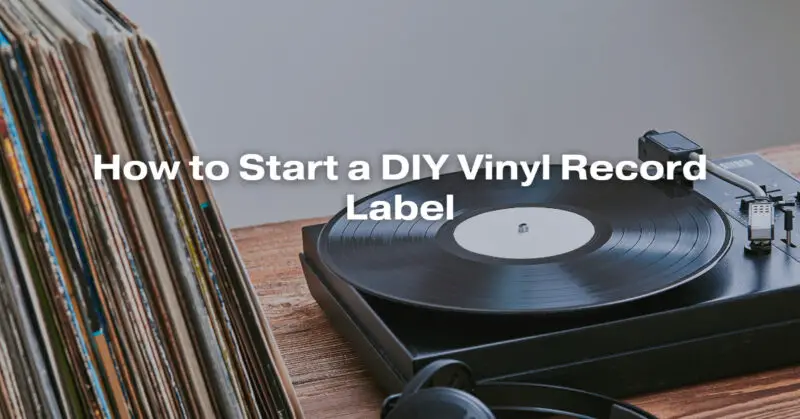Starting a DIY vinyl record label can be a rewarding venture for music enthusiasts and independent artists looking to release their music in physical form. While it involves careful planning and investment, the process can be fulfilling and allow you to support artists and music you believe in. Here’s a step-by-step guide to help you start your own DIY vinyl record label:
- Define Your Vision and Goals:
- Determine the genre or types of music you want to release.
- Identify your target audience and market niche.
- Set clear short-term and long-term goals for your label.
- Legal and Business Considerations:
- Choose a suitable legal structure for your label, such as a sole proprietorship, partnership, LLC, or corporation.
- Register your business and obtain any necessary licenses or permits in your jurisdiction.
- Consult with an attorney to draft contracts, licensing agreements, and other legal documents to protect your interests.
- Select a Name and Branding:
- Choose a unique and memorable name for your label.
- Design a logo and establish a visual identity for your brand.
- Ensure that your label’s name and branding are not already trademarked by another entity.
- Build a Team:
- Assemble a team of passionate individuals who share your vision for the label. This may include artists, producers, designers, and marketing professionals.
- Delegate responsibilities and define roles within your team.
- Funding and Budgeting:
- Determine your startup budget, considering expenses such as vinyl pressing, mastering, artwork, promotion, and distribution.
- Explore funding options, such as personal savings, loans, crowdfunding, or seeking investment from interested parties.
- Curate and Sign Artists:
- Scout and sign talented artists who align with your label’s vision and goals.
- Develop clear artist contracts that outline rights, royalties, and responsibilities.
- Record and Master Music:
- Work with your artists to record high-quality music.
- Invest in professional mastering services to ensure the best audio quality for vinyl production.
- Artwork and Packaging:
- Collaborate with artists or designers to create visually striking album artwork.
- Plan the packaging design, including vinyl jacket or sleeve, inner sleeves, inserts, and labels.
- Vinyl Production:
- Research and select a reputable vinyl pressing plant for your production needs.
- Coordinate with the pressing plant to determine production timelines, vinyl color options, and quality control procedures.
- Distribution and Sales:
- Establish distribution channels, both physical and online, to reach your target audience.
- Consider partnerships with local record stores, independent distributors, and online marketplaces.
- Set pricing and distribution strategies that align with your goals.
- Promotion and Marketing:
- Develop a comprehensive marketing plan to raise awareness about your label and artists.
- Utilize social media, music blogs, press releases, and live events to promote your releases.
- Build relationships with music journalists, influencers, and radio stations.
- Sales and Revenue Management:
- Set up a system for tracking sales, royalties, and revenue distribution to artists.
- Keep accurate financial records and consider using accounting software.
- Feedback and Adaptation:
- Be open to feedback from artists, fans, and industry professionals.
- Continuously adapt and refine your label’s strategies based on results and changing market trends.
- Sustainability and Growth:
- As your label grows, reinvest profits into future releases and expanding your roster.
- Stay committed to your vision while remaining adaptable to evolving opportunities and challenges.
Starting a DIY vinyl record label requires dedication, resilience, and a genuine passion for music. By carefully planning and executing each step, you can build a label that supports artists and contributes to the vibrant world of independent music.


